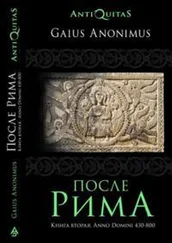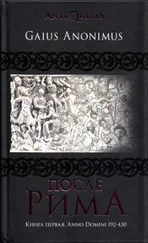Julius Vogel - Anno Domini 2000; or, Woman's Destiny
Здесь есть возможность читать онлайн «Julius Vogel - Anno Domini 2000; or, Woman's Destiny» — ознакомительный отрывок электронной книги совершенно бесплатно, а после прочтения отрывка купить полную версию. В некоторых случаях можно слушать аудио, скачать через торрент в формате fb2 и присутствует краткое содержание. Издательство: Иностранный паблик, Жанр: foreign_sf, literature_19, foreign_antique, foreign_prose, на английском языке. Описание произведения, (предисловие) а так же отзывы посетителей доступны на портале библиотеки ЛибКат.
- Название:Anno Domini 2000; or, Woman's Destiny
- Автор:
- Издательство:Иностранный паблик
- Жанр:
- Год:неизвестен
- ISBN:нет данных
- Рейтинг книги:4 / 5. Голосов: 1
-
Избранное:Добавить в избранное
- Отзывы:
-
Ваша оценка:
- 80
- 1
- 2
- 3
- 4
- 5
Anno Domini 2000; or, Woman's Destiny: краткое содержание, описание и аннотация
Предлагаем к чтению аннотацию, описание, краткое содержание или предисловие (зависит от того, что написал сам автор книги «Anno Domini 2000; or, Woman's Destiny»). Если вы не нашли необходимую информацию о книге — напишите в комментариях, мы постараемся отыскать её.
Anno Domini 2000; or, Woman's Destiny — читать онлайн ознакомительный отрывок
Ниже представлен текст книги, разбитый по страницам. Система сохранения места последней прочитанной страницы, позволяет с удобством читать онлайн бесплатно книгу «Anno Domini 2000; or, Woman's Destiny», без необходимости каждый раз заново искать на чём Вы остановились. Поставьте закладку, и сможете в любой момент перейти на страницу, на которой закончили чтение.
Интервал:
Закладка:
Great Britain, as it used to be called, has long ceased to be a bundle of sticks. The British dominions have been consolidated into the empire of United Britain; and not only is it the most powerful empire on the globe, but at present no sign is shown of any tendency to weakness or decay. Yet there was a time—about the year 1920—when the utter disintegration of the Empire seemed not only possible, but probable.
The Irish question was still undecided. For many years it had continued to be the sport of Ministers. Cabinet succeeded Cabinet; each had its Irish nostrum; each seemed to think that the Irish question was a good means of delaying questions nearer home. The power of the nation sensibly waned. What nation could be strong with pronounced disaffection festering in its midst? At length, when rumours of a great war were rife upon the result of which the very existence of Great Britain as a nation might depend, the Colonies interposed. By this time the Canadian, Australasian, and Cape colonies had become rich, populous, and powerful. United, they far exceeded in importance the original mother-country.
At the instigation of the Premier of Canada, a confidential intercolonial conference was held. In consequence of the deliberations that ensued, a united representation was made to the Prime Minister of England to the effect that the Colonies could no longer regard without concern the prolonged disquiet prevailing in Ireland. They would suffer should any disaster overtake the Empire, and disaster was courted by permitting the continuation of Irish disaffection. Besides, the Colonies, enjoying as they did local government, could see no reason why Ireland should be treated differently. The message was a mandate, and was meant to be so. The Prime Minister of England, however, puffed up with the pride of old traditions, did not or would not so understand it, and returned an insolent answer. Within twenty-four hours the Colonial Ministers sent a joint respectful address to the King of England representing that they were equally his Majesty's advisers with his Ministers residing in England, and refusing to make any further communications to or through his present advisers.
The Ministry had to retire; a new one was formed. Ireland received the boon it had long claimed of local government, and the whole Empire was federated on the condition that the federation was irrevocable and that every part of it should fight to the last to preserve the union. The King of England and Emperor of India was crowned amidst great pomp Emperor of Britain. All parts of the Empire joined their strength and resources. A federal fleet was formed on the basis that it was to equal in power in every respect the united fleets of all the rest of the world. Conferences with the Great Powers took place in consequence of which Egypt, Belgium, and the whole of the ports bordering the English Channel and Straits of Dover, and the whole of South Africa became incorporated into the empire of Britain. Some concessions, however, were made in other directions. These results were achieved within fifteen years of the interference by the Colonies in federal affairs, and the foundation was laid for the powerful empire which Britain has become. Two other empires and one republic alone approach it in power, and a cordial understanding exists between them to repress war to the utmost extent possible. They constitute the police of the world. Each portion of the Emperor of Britain's possessions enjoys local government, but the federal government is irresistibly strong. It is difficult to say which is the seat of government, as the Federal Parliament is held in different parts of the world, and the Emperor resides in many places. With the utmost comfort he can go from end to end of his dominions in twelve days.
If a headquarter does remain, it may probably be conceded that Alexandria fulfils that position.
The House of Lords has ceased to exist as a separate chamber. The peers began to feel ashamed of holding positions not in virtue of their abilities, but because of the accident of birth. It was they who first sought and ultimately obtained the right to hold seats in the elective branch of the Legislature; and finally it was decided that the peerage should elect a certain number of its own members to represent it in the Federal Parliament: in other words, the accidents of birth were controlled by the selection of the fittest.
Our scene opens in Melbourne, in the year 2000—a few years prior to the date at which we are writing. The Federal Parliament was sitting there that year. The Emperor occupied his magnificent palace on the banks of the Yarra, above Melbourne, which city and its suburbs possessed a population of nearly two millions.
In a large and handsome room in the Federal buildings, a young woman of about twenty-three years of age was seated. She was born in New Zealand. She entered the local parliament before she was twenty. 1 1 Every adult of eighteen years of age was allowed to vote and was consequently, by the laws of the Empire, eligible for election.
At twenty-two she was elected to the Federal Parliament, and she had now become Under-Secretary of State for Home Affairs. From her earliest youth she had never failed in any intellectual exercise. Her intelligence was considered phenomenal. Her name was Hilda Richmond Fitzherbert. She was descended from families which for upwards of a century produced distinguished statesmen—a word, it should be mentioned, which includes both sexes. She was fair to look at in both face and figure. Dark violet eyes, brown hair flecked with a golden tinge, clearly cut features, and a glorious complexion made up a face artistically perfect; but these charms were what the observer least noticed. The expression of the face was by far its chief attraction, and words fail to do justice to it. There was about it a luminous intelligence, a purity, and a pathos that seemed to belong to another world. No trace of passion yet stamped it. If the love given to all humanity ever became a love devoted to one person, the expression of the features might descend from the spiritual to the passionate. Even then to human gaze it might become more fascinating. But that test had not come. As she rose from her chair you saw that she was well formed, though slight in figure and of full height. She went to an instrument at a side-table, and spoke to it, the materials for some half-dozen letters referring to groups of papers that lay on the table. When she concluded, she summoned a secretary, who removed the papers and the phonogram on which her voice had been impressed. These letters were reproduced, and brought to her for signature. Copies attached to the several papers were initialled. Meanwhile she paced up and down the room in evident deep distraction. At length she summoned a messenger, and asked him to tell the Countess of Middlesex that she wished to see her. In a few minutes Lady Middlesex entered the room. She was about thirty years of age, of middle height, and pleasing appearance, though a close observer might imagine he saw something sinister in the expression of her countenance. After a somewhat ceremonious greeting, Miss Fitzherbert commenced: "I have carefully considered what passed at our last interview. It is difficult to separate our official and unofficial relations. I am still at a loss to determine whether you have spoken to me as the Assistant Under-Secretary to the Under-Secretary or as woman to woman."
Lady Middlesex quickly rejoined, "Will you let me speak to you as woman to woman, and forget for a moment our official relations?"
"Can you doubt it?" replied Miss Fitzherbert. "But remember that our wishes are not always under our control, and that, though I may not desire to remember to your prejudice what you say, I may not be able to free myself from recollection."
"And yet," said Lady Middlesex, with scarcely veiled irony, "the world says Miss Fitzherbert does not know what prejudice means!"
Читать дальшеИнтервал:
Закладка:
Похожие книги на «Anno Domini 2000; or, Woman's Destiny»
Представляем Вашему вниманию похожие книги на «Anno Domini 2000; or, Woman's Destiny» списком для выбора. Мы отобрали схожую по названию и смыслу литературу в надежде предоставить читателям больше вариантов отыскать новые, интересные, ещё непрочитанные произведения.
Обсуждение, отзывы о книге «Anno Domini 2000; or, Woman's Destiny» и просто собственные мнения читателей. Оставьте ваши комментарии, напишите, что Вы думаете о произведении, его смысле или главных героях. Укажите что конкретно понравилось, а что нет, и почему Вы так считаете.












